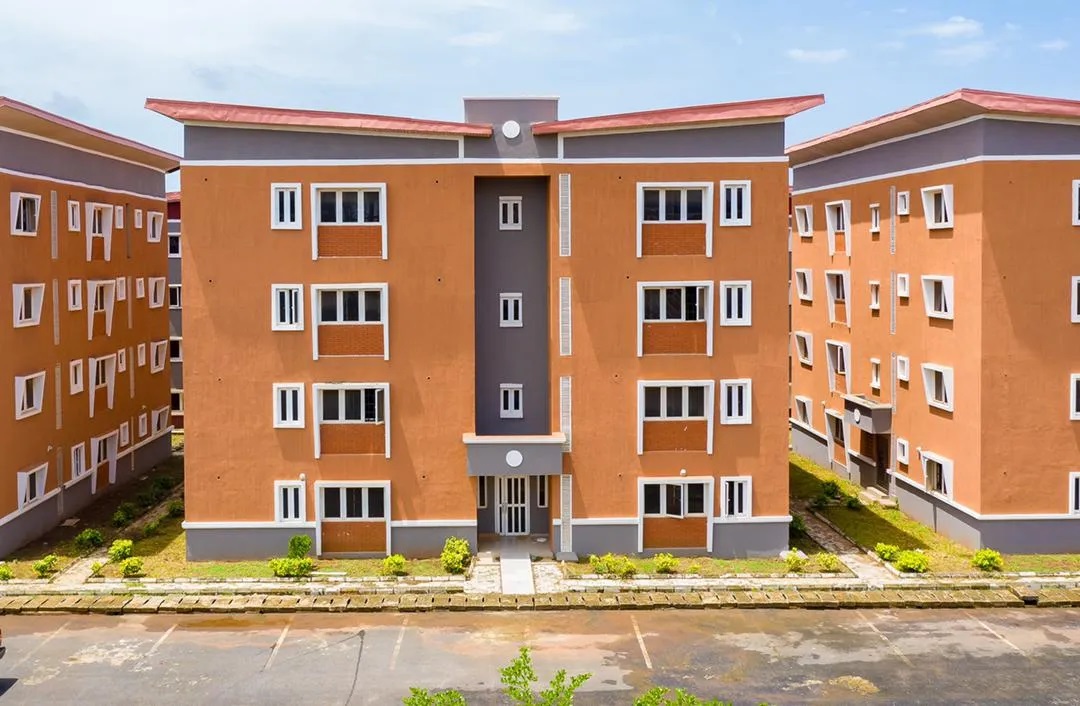Economy
Real Estate Delivers 15.6% RoI for Risevest Investors

By Adedapo Adesanya
Real estate portfolio delivered the best return for investors on US stocks and investment platform, Risevest, in 2022, with a 15.6 per cent return on investment (RoI).
In its Investment Wrapped: A Look At Our Investment Journey in 2022 newsletter, seen by Business Post, the company said that the year’s investment was actively affected by inflation and the measures to tackle it.
The company, despite the tough year, paid out $23.2 million to users while 109,800 plans were created while its members in its investment club grew to 15,100.
“All the monetary easing that central banks worldwide did in response to COVID led to the worst inflation numbers in over 40 years. US inflation peaked at 9.1%, and the aggressive increase in interest rates by the US Federal Reserve and other major central banks led to the global increase in the cost of capital,” it explained.
It added that although inflation in the world’s largest economy dropped as rate hikes hit 5 per cent, the increased rates and higher cost of capital led to a massive drop in the valuations of stocks and other assets, leading to some of the worst stock markets drop in recent history.
This was coupled with the energy and wheat crisis caused by Russia’s invasion of Ukraine, as well as the meltdown in the crypto industry.
The company revealed that real estate markets, including Myrtle Beach South Carolina homes for sale, were strong for most of the year until the final quarter, delivering double-digit returns for the Rise portfolio.
Also, energy commodities were up in the review year, and energy stocks like ExxonMobil defied the downturn and gained 70 per cent, adding that, “all of that was overshadowed by what has been the 7th worst performance of the stock markets ever in history.”
After the real estate market, fixed income delivered a 10 per cent return for the year, providing much-needed returns to users and balancing out the losses from stocks that fell 22 per cent in the year.
Speaking on moves it made, the company, in the newsletter, revealed that it introduced Airbnb to its portfolio based on its seasonal advantage and consumer-driven demand.
“For real estate, we introduced Airbnb rentals to our portfolio. While they are much more hands-on than our traditional rentals, their returns, even after expenses, are much higher, making it well worth the experience.
“However, we will continue to invest in Airbnb rentals as a smaller component of our real estate strategy due to their seasonality and the risk of changes in consumer behaviour,” parts of the article read.
For stocks, the company noted that it exited companies without either significant growth or cash-flow generation capabilities and, moving forward, will prioritise defensive companies with strong demand profiles and solid balance sheets.
“We held onto some tech companies like Facebook (Meta) and Google, who still present a lot of value despite deep sentiment against them, and we added new positions in both short and long-term bets that will pay off when stocks rebound.”
For the fixed-income portfolio, the overall fixed-income market saw relatively stable returns, with the Bloomberg Barclays U.S. Aggregate Bond Index returning 4.26 per cent and our portfolio delivering 10 per cent for the year.
“Our portfolio has a good representation of (third-party provided) consumer credit and mortgage-backed fixed-income assets and an increasingly smaller position in emerging market sovereign debt. Despite a tough market position, credit and debt profiles remain relatively stable.
“Also, with higher interest rates, it’s becoming increasingly possible to move up the risk ladder into even safer fixed-income assets without sacrificing returns, which is great news,” it said.
Presenting its outlook for the year, it said that looking at a possible recession, weakened demand, and a lean global supply chain, it expects a tougher first half and advised more people to “keep their budgets lean, emergency funds funded, and their investment plans disciplined.”
Product-wise, Risevest said “multi-year asset class plans are on the way, as well as varied account types. Multi-country support and a slew of new features, including dark mode, potential localised offerings, and more personalization, should also be expected to support our users’ financial journeys and unlock more wealth-creating opportunities for all Risers.”
Economy
Champion Breweries Concludes Bullet Brand Portfolio Acquisition

By Aduragbemi Omiyale
The acquisition of the Bullet brand portfolio from Sun Mark has been completed by Champion Breweries Plc, a statement from the company confirms.
This marks a transformative milestone in the organisation’s strategic expansion into a diversified, pan-African beverage platform.
With this development, Champion Breweries now owns the Bullet brand assets, trademarks, formulations, and commercial rights globally through an asset carve-out structure.
The assets are held in a newly incorporated entity in the Netherlands, in which Champion Breweries holds a majority interest, while Vinar N.V., the majority shareholder of Sun Mark, retains a minority stake.
Bullet products are currently distributed in 14 African markets, positioning Champion Breweries to scale beyond Nigeria in the high-growth ready-to-drink (RTD) alcoholic and energy drink segments.
This expansion significantly broadens the brewer’s addressable market and strengthens its revenue base with an established, profitable portfolio that already enjoys strong brand recognition and consumer loyalty across multiple markets.
“The successful completion of our public equity raises, together with the formal close of the Bullet acquisition, marks a defining moment for Champion Breweries.
“The support we received from both existing shareholders and new investors reflects strong confidence in our long-term strategy to build a diversified, high-growth beverage platform with pan-African scale.
“Our focus now is on disciplined execution, integration, and delivering sustained value across markets,” the chairman of Champion Breweries, Mr Imo-Abasi Jacob, stated.
Through this transaction, Champion Breweries is expected to achieve enhanced foreign exchange earnings, expanded distribution leverage across African markets, integrated supply chain efficiencies, portfolio diversification into high‑growth consumer beverage categories, and strengthened presence in the RTD and energy drink segments.
The acquisition accelerates Champion Breweries’ transition from a regional brewing business to a multi-category consumer platform with continental reach.
Bullet Black is Nigeria’s leading ready-to-drink alcoholic beverage, while Bullet Blue has built a strong presence in the energy drink category across several African markets.
Economy
M-KOPA Nigeria Plans Expansion to Edo, Others After N231bn Credit Milestone

By Adedapo Adesanya
Emerging market fintech firm, M-KOPA, has announced plans to deepen its reach in Nigeria to the South South and South East regions, starting with Edo this year, after providing N231 billion in credit to over 1 million customers in the country.
The firm released its first Nigeria-focused Impact Report, which showed that Nigeria is M-KOPA’s fastest-growing market and fastest to reach the milestone.
Since its foray into the Nigerian market in 2019, M-KOPA has been working to dismantle barriers to financial inclusion by providing flexible smartphone financing and digital financial tools that align with how people in the informal economy earn and manage their money.
It operates in six states in the country, including Lagos, Ogun, and Oyo, among others.
The report highlights the company’s contribution to income generation, digital inclusion and economic opportunity for Every Day Earners across the country.
The report showed that M-KOPA has enabled 290,000 first-time smartphone users, while 56 per cent of agents accessed their first income opportunity through the platform.
It showed high income and livelihood gains among its users, with about 77 per cent of customers leveraging smartphones or digital loans obtained through the platform to generate income, indicating that access to financed devices is directly supporting micro-entrepreneurial activity and informal sector productivity.
Furthermore, 75 per cent of users report higher earnings since gaining access to M-KOPA’s services, suggesting measurable improvements in personal revenue streams. On the distribution side, 99 per cent of agents disclose increased earnings, reflecting positive spillover effects across the company’s value chain.
In addition, 81 per cent of long-term customers state that their household expenses have improved, pointing to enhanced financial stability and better consumption smoothing over time.
Speaking on the report, Mr Babajide Duroshola, General Manager, M-KOPA Nigeria, said, “Nigeria represents extraordinary potential, and we’re proud that it has become M-KOPA’s fastest-growing market. Our Impact Report shows that when Every Day Earners gain access to the right digital and financial tools, they use them to create stability and long-term progress for their families. This is about access that unlocks opportunity and sustained prosperity.”
On its expansion plans Nigeria-wide, the M-KOPA helmsman said, “Many of the states we are considering are already similar to the ones we are currently in proximity… So, there is proximity and similarity between these states, and that’s what we are going to do, starting with Edo.”
He noted that as M-KOPA Nigeria continues to expand, the focus remains on ensuring more everyday earners gain access to the digital and financial tools they need to build resilient, prosperous futures in Nigeria’s rapidly digitising economy.
Economy
Tinubu Okays Extension of Ban on Raw Shea Nut Export by One Year

By Aduragbemi Omiyale
The ban on the export of raw shea nuts from Nigeria has been extended by one year by President Bola Tinubu.
A statement from the Special Adviser to the President on Information and Strategy, Mr Bayo Onanuga, on Wednesday disclosed that the ban is now till February 25, 2027.
It was emphasised that this decision underscores the administration’s commitment to advancing industrial development, strengthening domestic value addition, and supporting the objectives of the Renewed Hope Agenda.
The ban aims to deepen processing capacity within Nigeria, enhance livelihoods in shea-producing communities, and promote the growth of Nigerian exports anchored on value-added products, the statement noted.
To further these objectives, President Tinubu has authorised the two Ministers of the Federal Ministry of Industry, Trade and Investment, and the Presidential Food Security Coordination Unit (PFSCU), to coordinate the implementation of a unified, evidence-based national framework that aligns industrialisation, trade, and investment priorities across the shea nut value chain.
He also approved the adoption of an export framework established by the Nigerian Commodity Exchange (NCX) and the withdrawal of all waivers allowing the direct export of raw shea nuts.
The President directed that any excess supply of raw shea nuts should be exported exclusively through the NCX framework, in accordance with the approved guidelines.
Additionally, he directed the Federal Ministry of Finance to provide access to a dedicated NESS Support Window to enable the Federal Ministry of Industry, Trade and Investment to pilot a Livelihood Finance Mechanism to strengthen production and processing capacity.
Shea nuts, the oil-rich fruits from the shea tree common in the Savanna belt of Nigeria, are the raw material for shea butter, renowned for its moisturising, anti-inflammatory, and antioxidant properties. The extracted butter is a principal ingredient in cosmetics for skin and hair, as well as in edible cooking oil. The Federal Government encourages processing shea nuts into butter locally, as butter fetches between 10 and 20 times the price of the raw nuts.
The federal government said it remains committed to policies that promote inclusive growth, local manufacturing and position Nigeria as a competitive participant in global agricultural value chains.
-

 Feature/OPED6 years ago
Feature/OPED6 years agoDavos was Different this year
-
Travel/Tourism10 years ago
Lagos Seals Western Lodge Hotel In Ikorodu
-

 Showbiz3 years ago
Showbiz3 years agoEstranged Lover Releases Videos of Empress Njamah Bathing
-

 Banking8 years ago
Banking8 years agoSort Codes of GTBank Branches in Nigeria
-

 Economy3 years ago
Economy3 years agoSubsidy Removal: CNG at N130 Per Litre Cheaper Than Petrol—IPMAN
-

 Banking3 years ago
Banking3 years agoSort Codes of UBA Branches in Nigeria
-

 Banking3 years ago
Banking3 years agoFirst Bank Announces Planned Downtime
-

 Sports3 years ago
Sports3 years agoHighest Paid Nigerian Footballer – How Much Do Nigerian Footballers Earn



















